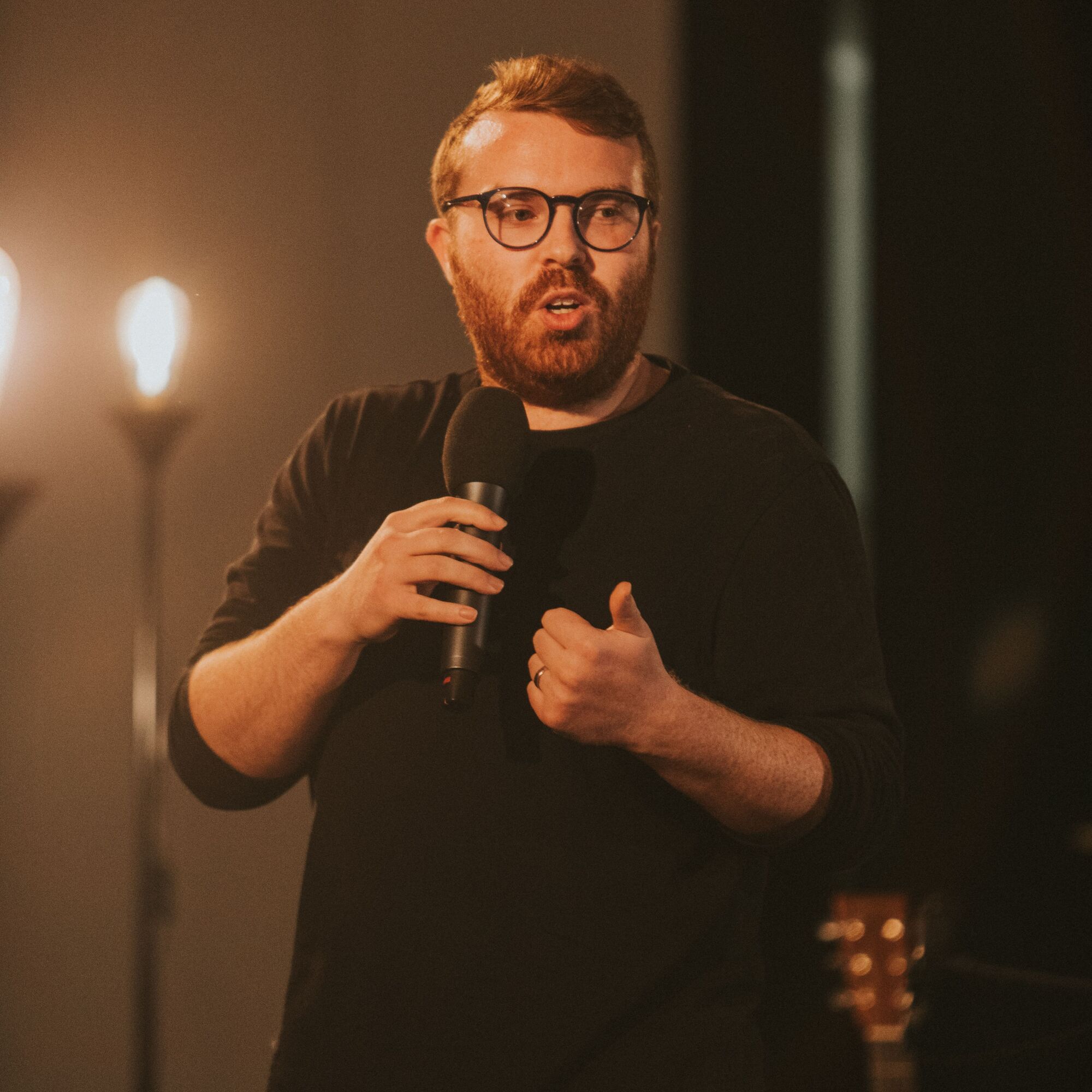
How to help others share their testimony
Enabling people to tell their story on a day-to-day basis is not difficult; we just need to give them space and then listen, although we might ask ourselves “When did we last really stop and listen to someone else?” Encouraging people to share their story and offer testimony in worship needs a little more thought if we are truly to enable people to offer their best to God. Sometimes this means time for preparation, sometimes it requires careful ‘stage management’ so that the contributions of others might enhance our worship.
Worship Leaders, Local Preachers and Ministers are key to enabling congregations to hear the voice of the priesthood of all believers. Encouraging someone to tell their story (or give testimony) can enhance a traditional Preaching Service, become the centrepiece of a Local Arrangement Service, or be at the heart of Café Style worship. Telling stories and listening to them is a truly intergenerational activity.
If we are to include people’s stories in worship, we should first consider what testimony is and why we might want to include it as part of the worship of God.

What is testimony?
Put simply, testimony is sharing our story and our experiences with others. Linking our story to God’s story becomes a public statement of faith. Speaking of God’s providence, or how God has been with us in difficult times, enables others to see where God is at work in their lives. In the technical sense of the word (and especially in legal circles) to give testimony is to bear witness to something and so in church we traditionally hear people bearing witness to how they met Jesus, of the work of God in their lives, or what they have seen God doing in the world today.
Why use testimony?
It’s Biblical!
“In your hearts set apart Christ as Lord. Always be prepared to give an answer to everyone who asks you to give the reason for the hope that you have.” 1 Peter 3:15
It’s personal!
As human beings, we come alive when we hear other peoples’ stories and when we are heard. Our stories are rooted in reality and are often easier to listen to than a sermon!
It’s relational!
For Christians, it’s good to hear and celebrate what God has done and is doing in other people’s lives. Hearing other people’s stories can act as a reminder of how God is still active in our lives and in the church, so it offers encouragement and builds up faith in others.
It’s evangelical!
The more willing we are to share our stories among the Church, the more willing we will be to tell our story outside. As any good storyteller will tell you – the story always gets better with practise.
In our world and in the Church, the proclamation of our story weaved with God’s story needs to be heard and is often transformational. For some this can be daunting, but for many it is liberating, for everyone has a story if only we could enable them to tell it.
One of the skills of the leader and curator of public worship is to consider what might be a method or technique to enable people to share their story. Below we offer some techniques that Worship Leaders, Local Preachers and Ministers can use to help people tell their story. They are grouped by the time they take to set up and prepare. Some, like the Match Testimony require no preparation (apart from supplying a box of matches); whilst others like preparing a Love Feast will take a little more effort to bring together.
TECHNIQUES FOR TESTIMONY
Match Stick Testimony
In the time it takes for a match to burn tell us (either):
Why you come to Church?
What do you believe about God?
What experience have you had of God this week?
Preparation:
Buy a box of matches
Ask for volunteers from the congregation
This is wonderfully spontaneous. Given the right question, everyone can join in. There is very little time to speak, so for many this will reduce the pressure of public speaking. This form of testimony works in many settings: in a large gathering with the person giving testimony speaking into a microphone, as part of a small group, or around a table at café style worship.
This Time Tomorrow
A simple device: invite people to tell the group what they will be doing this time tomorrow. What you are wanting people to think about, and hopefully articulate, is in what way does tomorrow’s activity relate to their faith? For us all, we can begin to consider how the things we do outside of Sunday morning are worship and witness. This also enables congregations to know a little more of each other beyond the Sunday gathering.
Preparation:
You can call for volunteers to speak about this, or you might run a series where you pre-warn people that you are going to ask them what they will be doing this time tomorrow.
Good News Stories or “What is God doing now?”
Asking members of the congregation to share Good News stories, or you might want to ask, “What’s God doing now?”
It may be stating the obvious, but sharing good news whatever it is, is giving testimony. It’s probably the easiest way to enable a congregation to share and ensure the story is fresh.
When could you best use this in worship?
Preparation:
This technique takes very little preparation and gets better the more you use, as congregations will come prepared and more aware of what God is doing in their lives.
What is challenging for us now?
Ask this question to individuals or to the church as a whole. Testimony can and should be a springboard where the congregation can offer support to each other at difficult times and lead us to pray for one another. We can’t pray for a person if we don’t know what is going on in their lives.
Preparation:
You can ask the congregation if anyone has something to share or you may ask someone in advance.
This technique probably takes more courage from both the storyteller and worship leader.
Sofa Interview
Invite member of the congregation to come and be interviewed. You might be aware that they have a good story to tell.
You can ask them about their passions, the things they do to serve the church, the things they do outside the church. The benefit of this method is that it supports the person giving their testimony with prompts, prevents them rambling, and ensures that the person is listened to. This is a good method for those less confident in standing up and speaking in public. It’s also useful if you suspect someone could tell their story for hours.
Preparation:
Ask someone in advance if they are willing to be interviewed. You’ll need to think carefully about your interviewing technique and, if appropriate, agree the questions beforehand.
Bible stories that speak to us
Encourage one or two people to share a Bible story that speaks of their understanding of God. Everybody has a Bible story that has spoken to them for a long time or is speaking to them now.
Preparation:
It’s helpful to ask someone to prepare this in advance, although some will be able to speak “off the cuff”.
Music that speaks to us
Share a piece of (non-religious) music that speaks of your relationship with God.
By playing a recording of music, it allows us to “go deep” quickly. People can share what it is saying to them. Avoiding religious music stops this becoming clichéd, and encourages us to see links between the sacred and secular.
Preparation:
Ask someone in advance to be prepared to do this. Make sure you have the appropriate equipment to play the music.
Hymns that speak to us
Share a hymn that speaks to your Christian journey with God. It’s best if this is not over prepared – we’re not looking for a thesis or the history of a hymn or song; we want to hear how God has spoken to them through the hymn.
Preparation:
Ask someone in advance to be prepared to do this. Make sure you have the appropriate equipment to play the music.
How I became…
Ask someone to share how they became a Worship Leader, Local Preacher, Church Steward, Trustee for…, etc. Don’t forget this technique works for people working outside the church, many of whom do what they do because they feel it is their vocation.
Preparation:
Ask someone in advance to be prepared to tell their story.
Love Feast
The love feast is one of the Methodist Church’s oldest traditions – it has often been neglected.
Preparation:
You will need to prepare this well in advance, as you need to frame the questions well and have something to share at the feast.

A Few Caveats
Don’t always focus the question on ‘when I became a Christian’. There is clearly room for this and it has power, but we also want people to look for where God is working in their lives now. Think creatively – the question you are going to ask is as important as the method and will ideally link to the theme or style of the worship. Don’t forget that children and young adults have stories too – and will often be more honest!
You might be asking the bigger questions like, “what’s Jesus’ story for us today?” or “what’s the Church’s story today? And how might we tell those stories in and through our worship?”
The question for us all is, ‘So, what’s your story?’ There is power in your story because it is your story and nobody knows it better than you!
Please feel free to use




